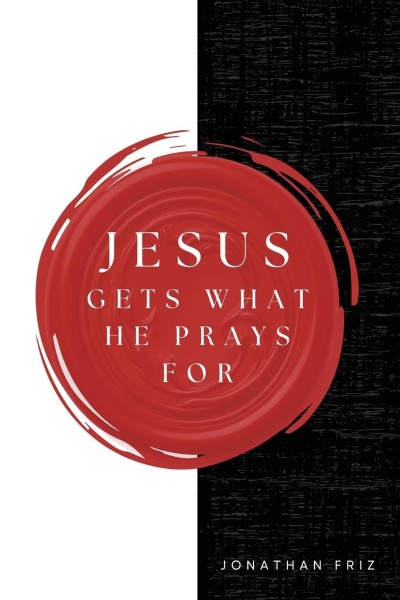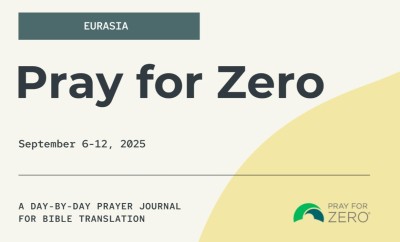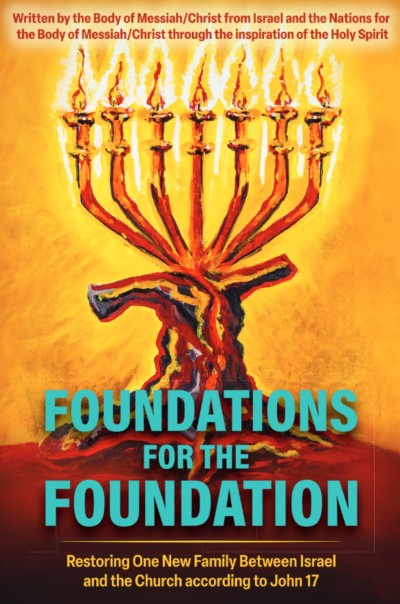"A powerful, global perspective of prayer around the world."
“amazing, important, relevant, timely.”
“the cinematography in this film is outstanding”
"more than a documentary..."
The Church was born in a ten day prayer meeting
In Acts chapter one, 120 of the earliest disciples came together in an Upper Room in Jerusalem, devoting themselves constantly to united prayer. After ten days, on the day of Pentecost, the Holy Spirit was poured out.
Miracles, salvation, persecution, generosity, and unusual love and unity: these were the hallmarks of the early church. However, for many Christians, their experience of God today looks nothing like the book of Acts.
10 Days is a feature-length documentary on a global prayer movement based on the Acts 1 prayer meeting, a gathering that takes place simultaneously in hundreds of locations during the ten "Days of Awe" each year. It tells the stories of everyday believers in Pakistan, India, Israel, Uganda, and the United States who are praying like the early church.
What happens when people take vacation time to pray and seek God?
Could it really be that when people pray like the book of Acts, things still happen?
Can extraordinary prayer still change the world?
It's time to see and believe what is possible when ordinary people pray in an extraordinary way.
From September 5-22, we are offering a special pre-release of 10 Days, the new feature-length documentary on the global impacts of extraordinary prayer. After this brief window, the film will be unavailable again until its full release in early 2026.
What is 10 Days?
10 Days is a prayer movement that is observed annually in hundreds of locations around the world. It’s based on the “upper room” prayer meeting described in the book of Acts, chapter 1 – a time of extraordinary prayer that spans 240 hours. (More follows below)
Where can we watch the pre-release?
After signing up to host a Watch Party, an email will be sent with a link to view the film, which will be available from September 5 to 22.
More Info and Register: https://www.10daysfilm.com/

10 DAYS of AWE: JOIN THE GLOBAL UPPER ROOM - Sept. 22 - Oct. 2 2025
10 Days is a global, city-wide season of consecration - ten full days (Sept 22–Oct 2 in 2025) set aside for worship, prayer, fasting, repentance, and unity under the banner of Jesus Christ 10 Days of Prayer+1.
Born from a visionary call in 2004 centered on Jesus’ prayer in John 17 for unity - and inspired by the “Days of Awe” between Trumpets and Atonement - 10 Days invites entire cities and regions to “stop” their usual rhythms and enter into an atmosphere akin to the biblical “upper room” (Acts 1-2) and the city of Nineveh’s repentance. Read More about 10 Days
Organized locally by city coordinators working across congregations and networks, events can take many forms - hub-city gatherings, multi-site expressions, small groups, virtual rooms - all aiming to create a “global upper room” for transformation, revival, and the return of Jesus.
Every year on 30th September, Christians around the world pause to celebrate Bible Day - a vision first launched in 1966 by Wycliffe’s founder, William Cameron Townsend. This is more than a date on the calendar: it’s a powerful reminder of what God has done - and continues to do - through the translation of His Word into the languages of the nations.
When people encounter Scripture in their heart language, lives are transformed. Communities discover their worth, cultures are affirmed, and millions are meeting Jesus in a deeply personal way. Yet the task is not finished. Around 600 languages - representing nearly one billion people - still have no access to the Bible.
That’s why we’re praying and working together for the bold and urgent vision: Zero people without the Bible by 2033 - the 2,000th anniversary of the resurrection of Jesus.
This year, on Tuesday 30 September 2025, 6am-8am Pacific Time, you are invited by IPC, Pray for Zero and World Prays to join a global online celebration and prayer gathering. This two-hour livestream will bring the worldwide Church together for worship, all-age prayer, and inspirational stories. You’ll hear from international leaders across the Bible translation movement, and from ordinary believers whose lives have been changed by reading God’s Word in their own tongue.
We will pause to give thanks for the tremendous progress already made in recent decades, while also interceding for a fresh acceleration so that every people group can hold the Scriptures in their hands. As Ephesians 6:18 reminds us, we are called to “pray in the Spirit on all occasions with all kinds of prayers and requests.”
This is more than an event - it’s a historic moment for the Body of Christ to stand united, sowing seeds of prayer that will bear eternal fruit. Now is the time for believers of every age and background to rise up together, lifting their voices for the advancement of God’s Word.
 Will you take your place? Join us this Bible Day as we worship, pray, and believe God for a generation where everyone can encounter Jesus through the Scriptures in their heart language.
Will you take your place? Join us this Bible Day as we worship, pray, and believe God for a generation where everyone can encounter Jesus through the Scriptures in their heart language.
More Info and Join us online HERE!
See also:
www.prayforzero.com
Join Us for 15 Days of Prayer for the Hindu World (12–26 October 2025)
“Declare His glory among the nations, His wonders among all peoples.” (Psalm 96:3)
We warmly invite you, your family, and your church to join International Prayer Connect for 15 Days of Prayer for the Hindu World, from 12–26 October 2025. Together, let’s stand in prayer for over 1.2 billion Hindus, many of whom have never heard the Good News of Jesus Christ.
This special prayer initiative surrounds Diwali, the Hindu “Festival of Lights”- a time when hearts are open to spiritual conversations and new beginnings. As Hindus celebrate light triumphing over darkness, we believe this is a prophetic moment to pray that many will discover Jesus, the true Light of the World (John 8:12).
We’re excited to announce that adult and children’s prayer guides have been prepared in over 30 languages and are available at 110cities.com. These guides feature powerful testimonies - like miraculous healings that led entire villages to Christ - alongside fascinating facts, cultural insights, and profiles of cities where significant unreached Hindu people groups live. Each day offers focused prayer points and links for further exploration.

This journey includes, on 20th October, a Global Day of Prayer, uniting believers worldwide to intercede for breakthrough among Hindu communities.
“Ask of Me, and I will give You the nations for Your inheritance.” (Psalm 2:8)
Whether you’re a church leader, a family, a youth group, or an individual intercessor, your prayers can open spiritual doors and transform destinies.
Let’s raise our voices together so that every Hindu person may one day hear and respond to the hope found in Jesus Christ.
Join us - and let’s pray for the Hindu world!
More info: https://110cities.com/hinduism/
Join the Eurasia 24/7 Prayer Summit – Called to the Wall!
13-15 October 2025 (Optional Prayer Journey on 16th) - Island of Malta
Across Europe and the Middle East, there’s a rising sense of urgency and hope. The spiritual heritage of these lands runs deep, and many believe we are standing on the threshold of a great awakening.
In this pivotal hour, Jericho Walls International Prayer Network and IPC warmly invite you to the Eurasia 24/7 Prayer Summit, taking place 13–15 October 2025 on the beautiful island of Malta.
The summit’s theme, “Called to the Wall,” echoes the powerful words of Isaiah 62:6-7:
“I have set watchmen on your walls, O Jerusalem; they shall never hold their peace day or night. You who make mention of the Lord, do not keep silent, and give Him no rest till He establishes and till He makes Jerusalem a praise in the earth.”
God is raising up watchmen—men and women who will not rest until Heaven touches Earth in Western Europe, Eastern Europe, and the Middle East. The Eurasia Summit is a gathering for those who carry a burden for prayer for revival in these regions. Leaders from every nation in this vast and diverse part of the world will gather in Malta to celebrate what God is doing and contend for what is yet to come.
This summit is part of a global movement, one of five strategic gatherings around the world, all carrying the same vision: to see 24/7 prayer established in every nation on earth by 2033.
The mission is clear—to encourage, equip, and empower leaders to build unceasing prayer in local churches, cities, and nations.
Whether you are a pastor, prayer leader, intercessor, or simply someone burning with a vision to see God move in your nation, this summit is for you. Let’s unite across borders, languages, and cultures to lift up one sound, one cry, one relentless prayer: “God, have Your way in our nations!”
Watch the video: https://youtu.be/C1_y6nitYfg
More info and SignUp
Join us in Malta this October. Let’s answer the call to the wall—together!
Links to all IPC Projects:
https://linktr.ee/ipcprayer
Light of the World Movie
www.lightoftheworld.com/
10 Days Video Launch – 5-22 September 2025
www.10daysfilm.com/
110 Cities Prayer
www.110cities.com | Daily Prayer Fuel Sign Up
Global Family 24-7 Prayer Room
www.globalfamily24-7prayer.org/
Prayer Covenant for Children Mobile App
theprayercovenant.org/mobileapp/
Pentecost Global Day of Prayer Replays
VIEW AND WATCH ON YOUTUBE HERE
Interseed House of Prayer App
prod.global.interseed.io/link/groups?id=146
24-7 Week of Prayer – 1-7 September 2025
www.24-7prayer.com/weekofprayer
EAUK Day of Prayer: Gujarati Community - 9 Sept
www.eauk.org
Prayer Boot Camp - Europe Shall be Saved - 12-15 Sept 2025
https://www.facebook.com
10 Days 2025 | Sept. 22 - Oct. 2
www.10days.net
Shine! – All age prayers for the ‘Light of the World’ movie – 23rd Sept 2025
https://www.2bc.world/shine
Lausanne Congress Reunion Online - 22 Sept
www.lausanne.org
Bible Day – 30 Sept
www.youtube.com/@ipcprayer/streams">www.youtube.com/@ipcprayer/streams>
Communion Revival Oct 9-12th
awakenthedawn.com/communionamerica/
15 Days of Prayer for the Hindu World
12-26 October 2025
www.110cities.com
Eurasia Prayer Summit – 13-15 October 2025
jwipn.com/eurasia-24-7-prayer-summit-2025/
Global Day of Prayer for the Hindu World
20th October 2025 – From 8am (EST)
www.110cities.com
On the night before He died, Jesus prayed an impossible prayer: "Let them be one just as We are one." (John 17:21) Almost 2,000 years later, His followers are split into thousands of different groups. The dying request of Jesus remains unanswered.
Is there any hope that Jesus Gets What He Prays For?
This in-depth study of John chapter 17 explores the following questions:
What does it mean to be one "as the Father and Son are one?"
What does the Bible reveal about the timetable for the fulfilment of John 17?
How can I practically be part of the answer to Jesus's greatest prayer?
And: Is it really possible that Jesus Gets What He Prays For?
Prepare to have your faith stretched and your mind opened by Jesus's greatest prayer.
Every week, Seed Co invites you to join us in praying toward ZERO, the day when not a single person is left without Scripture in their language.
This week’s journal brings you stories of God’s Word reaching hearts in Eurasia:
- Plans are underway to start Bible translation in every language of a tightly closed country.
- A Briyani man was moved to tears as he encountered Jesus through Scripture.
- God provided partners and resources so that storytelling teams could continue their work.
- New consultants in training, including Deaf leaders, are preparing to serve sign language projects.
As you read, you will also find specific daily prayer points from global updates to personal stories of faith that guide you in praying strategically with others.
What a joy it is to witness God’s work and to join other believers in prayer. Thank you for standing in the gap until all people have access to Scripture.
Read, Pray, Join Us on this Assignment!
Blessings,
The Pray For Zero Family

Foundations for the Foundation is a powerful and timely book written to help everyday followers of Jesus understand God's heart for unity between Jewish and Gentile believers.
Rooted in Jesus’ prayer for oneness in John 17, this short but deep book highlights vital biblical truths that have often been lost or misunderstood throughout Church history.
The book explains how Jesus (Yeshua in Hebrew) came first to the Jewish people and how the early Church was birthed by Jewish believers. Over time, however, the Church became mostly Gentile and distanced itself from its Jewish roots. This separation has led to division and even centuries of misunderstanding and mistreatment of the Jewish people by Christians.
Now, as more Jewish people are coming to faith in Jesus than ever before, God is inviting His Church to heal this historic rift.
This restoration is not about going back to the Old Testament law but reconnecting with the full story of the Gospel—one that includes both Israel and the Nations.
The authors describe this as forming “One New Family” or “One New Man” (Ephesians 2), where Jews and Gentiles stand side by side, united in faith, purpose, and love.
Each chapter, written by respected Christian and Messianic leaders, explores different aspects of this reconnection - from understanding God’s covenant with Israel, to embracing our shared calling in the Great Commission, to learning how united prayer plays a vital role in God’s end-time purposes.
The book also emphasizes the need for love, humility, and repentance, especially from Gentile believers, to rebuild trust and partnership with Jewish believers.
Written in a clear, humble, and Spirit-led tone, Foundations for the Foundation isn’t about theology alone - it’s a call to action. It invites believers to return to God’s heart, align with His purposes, and take their place in a global move of reconciliation and revival.
Whether you are new to faith or a long-time believer, this book will open your eyes to the “Israel piece” in God’s redemptive plan and help you walk in greater love, unity, and spiritual power as the Body of Christ prepares for the return of the King.
The book is available as a print pdf / e-pub format for FREE - HERE
It will be available as a paperback book in the fall







